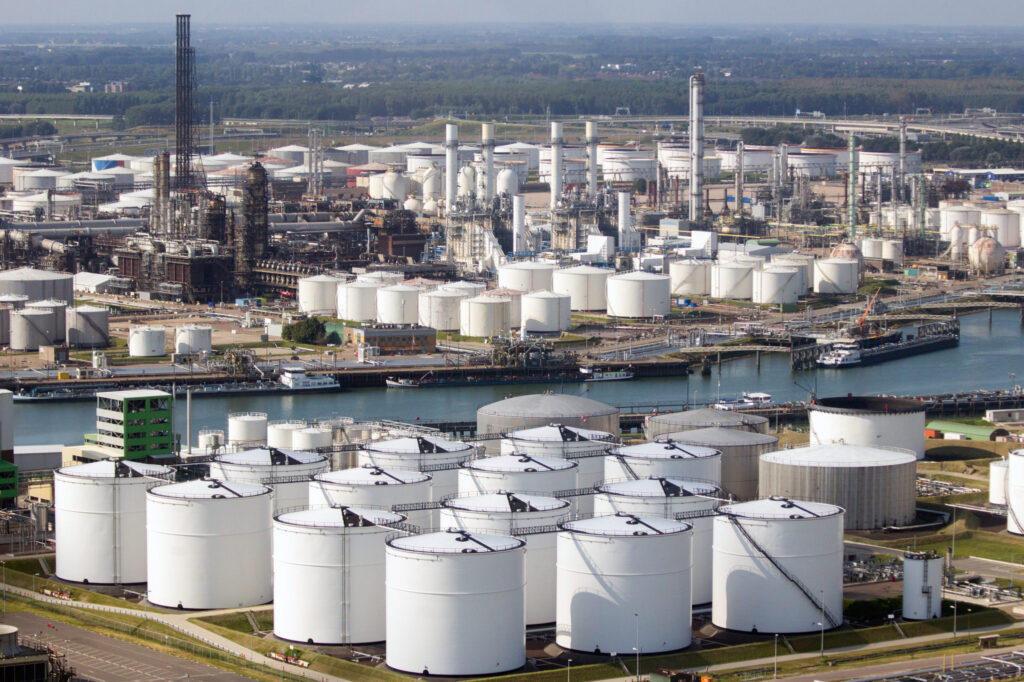
The oil storage in South America is vital to the energy infrastructure, influenced by rising oil output, varying demand, and the necessity for energy security. Extensive storage capabilities, refined oil products, and oil reserves guarantee availability in times of crisis. Oil storage is essential in the energy sector as it impacts market dynamics. This contributes to maintaining supply chain stability and enhances energy security. It also aids in balancing supply and demand by accumulating energy when demand is low. Oil storage facilities enable the control of oil inventories, which can affect oil prices. It is crucial for ensuring a steady and dependable energy supply chain. Storing oil can additionally ease the incorporation of renewable energy sources. Insulator pins hold up the weight of the conductors and stop electrical current from passing into the support structure.
Insulator pins are essential in the electrical framework that underpins the functioning of oil storage facilities. This guarantees a dependable and constant power source crucial for the effective and secure functioning of the facilities. Insulator pins offer electrical separation between conductive components. This prevents undesired electrical discharge to the ground. This aids in preserving the integrity of high-voltage power lines that carry electricity from oil storage sites to consumption regions. The pins lower the chances of electrical dangers and guarantee the safety of both workers and the general public. In doing so, they enhance the safety, reliability, and efficiency of oil storage systems. Oil storage offers a supplementary energy supply and assists in handling the variability of renewable energy sources. These include wind and solar. This piece examines the significance of oil storage within the energy sector of South America. It also examines the significance of insulator pins in oil storage systems.
Importance of insulator pins in oil storage systems
Insulator pins guarantee the safety, effectiveness, and durability of oil storage systems. They guarantee that the electrical currents are adequately insulated and do not threaten the functioning of oil storage systems. Insulator pins support power lines, manage circuits, and regulate lighting systems in oil storage facilities. They additionally aid sensors and monitoring devices to identify leaks. Outlined below are the main importance of insulator pins in oil storage.

- Avoiding electrical dangers – insulator pins secure and support electrical wires while preventing electricity from seeping into nearby structures. They diminish the likelihood of unintentional grounding that might interfere with operations.
- Achieving operational efficiency – the pins aid in sustaining a stable electrical network and guarantee uninterrupted operations. This is due to the fact that the majority of oil storage systems rely on pumps, monitoring devices, and safety systems powered by electricity.
- Improving safety protocols – insulating electrical wires with insulator pins decreases the likelihood of sparks. Insulator pins protect oil storage tanks and pipelines from lightning impacts.
- Ensuring structural stability – insulator pins can withstand mechanical pressures like the load of electrical cables. The integrity of structures contributes to the safety and longevity of oil storage facilities.
- Regulatory adherence – insulator pins assist in achieving safety and operational regulations for oil storage facilities.
The significance of oil storage in the energy sector of South America.
The storage of oil affects production, distribution, and global market dynamics. This is crucial for the energy sector in South America. South America possesses plentiful natural resources that enhance its oil storage capabilities. Oil storage facilities will provide stability, improve export potential, and foster economic expansion. TTF is a world-class global provider of high quality overhead line hardware, transmission hardware, distribution hardware, conductors, insulators, cutout switches, anchoring and grounding products.These products support the development of oil storage systems in South America. The key functions of oil storage in South America’s energy sector are as follows.

- Controlling supply and demand – oil storage units enable producers to keep surplus oil when production exceeds use. Oil storage guarantees a consistent supply to global markets even during production interruptions.
- Facilitating refining and processing – oil storage facilities provide refineries with a steady supply of crude oil. This enables them to function and meet local fuel needs. Refined products such as gasoline, diesel, and jet fuel are kept in storage before being distributed to local and global markets.
- Guaranteeing energy security – oil reserves act as an emergency resource for South American nations to maintain energy security.
- Enabling energy transition – oil storage facilities can be adapted for alternative fuels such as biofuels, hydrogen, and synthetic fuels. Certain infrastructure can additionally ease carbon capture and storage to lessen the carbon footprint of oil production.
- Infrastructure advancement – the necessity for sophisticated oil storage facilities drives investment in building and upkeep. This generates employment opportunities and enhances local economies.
- Export-focused economies – storage units guarantee the accessibility for oil transport to major markets. They also guarantee the efficient loading and transport of oil, minimizing delays in export activities.
